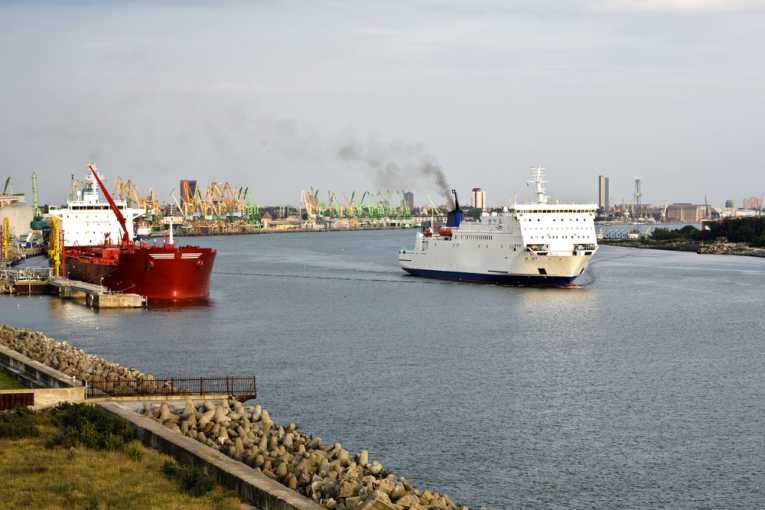CCC says International Shipping Emissions should potentially be included in 2050 targets
The UK's share of international shipping would be potentially responsible for up to 11.25% of all emissions that are allowed by 2050 as set by the Climate Change Act according to the Committee on Climate Change (CCC). This equates to 18 Mt CO2 out of a total of 160 Mt CO2.
The CCC now recommends that these shipping emissions should be included in the 2050 target due to the fact that shipping emissions are often material and can have implications on approaches in other sectors. They also recommend that the EC and the Government should be working together to get hold of data on the fuel use from these shipping operators in order to get a more accurate view of consumption and emissions and to get rid of all uncertainties.
The target set is to reduce emissions to 80% below 1990 levels by the year 2050. Currently the carbon budgets and UK emission targets for 2050 do not include any emissions produced from aviation or shipping. However, parliament must now decide if this is to change and must present a decision under the Climate Change Act by the end of 2012.
The review published today is one of the first times these issues have been fully discussed and there is still a lot of uncertainty about what the figure for international shipping emissions should actually be set at and even what it currently runs at as there is a significant lack of data available. The analysis from the CCC suggests a likely range of 12-16 MtCO2 but this could easily be a higher figure.
The report goes on to make the suggestion of significant reductions in emissions from this sector through a number of different ways. One of the major changes that could be made is to the fuel used and a switch to biofuels and Liquefied Natural Gas (LNG) being used. There are also suggestions that operational procedures could become more effacing by reducing the speed of travel to further save fuel and using software to find the most efficient routes. The CCC also cites advances in technology that allow the use of wind and solar energy as well as increases in efficiency.
The report has raised the point of how significant the impact of international shipping emissions are and have highlighted the potential importance of needing to include them in the targets that have been set for 2050. They have made 3 different suggestions for the inclusion in these targets. The first is to simply having these international shipping emissions included in the 2050 targets and carbon budgets right now. The second is that international shipping emissions are included in the 2050 target and carbon budget but not until progress has been made in how data is accurately reported. The third suggestions that the CCC have made is that the international shipping emissions are included in the 2050 target now but not in carbon budgets until the progress has been made in accurately reporting emissions.
The Chief Executive of the Committee said, "Our report highlights the high degree of uncertainty over current and future shipping emissions and the need to resolve this. However, it is clear that shipping emissions could well be significant, and so cannot be ignored - they should be included under the Climate Change Act. It is also clear that there is scope to reduce emissions, which would reduce costs of inclusion. In order to ensure this, the Government should proactively support development of new policies aimed at encouraging investment in cleaner shipping technologies and more efficient operational practices."
The CCC will be advising the Government of its recommendation in March 2012.










